Amid escalating environmental concerns and corporate responsibilities, prioritising sustainability has become paramount. The latest DINO Talkx webinar convened industry experts to discuss ecological impact measurement and responsible supply chain management.
Panellists:
- Mika Rantanen, CEO of Würth Oy
- Nina Pirinen, Development Manager at Ramirent Finland Oy
- Emilia Vuorela, Head of Marketing and Communications at Pemamek
- Ari Kaapola, Supply Chain Manager at Dinolift
Operational Challenges in Sustainability
The DINO Talkx webinar, expertly hosted by Niina Nurmi from Puro Pro, commenced with a dive into operational challenges. This set the stage for a comprehensive exploration of various hurdles, with the first topic of discussion revolving around the intricate process of reshaping a company's culture and mindset.
Rantanen emphasised the formidable task, stating, “Würth, like many companies, was founded long before ESG, so it's something we must adapt. We have a considerable cultural shift ahead to ensure it becomes part of our processes. We know ESG shouldn't be an isolated island; it should be part of everyone's daily work and the company's strategies.”
Vuorela shed light on Pemamek's supply chain challenges, saying that while they export most solutions globally, their manufacturing happens locally: “This gives us control over waste management and side streams. Yet, a notable challenge lies in data reporting and supply chain information retrieval, as we anticipate it is becoming one of the primary operational system challenges.”
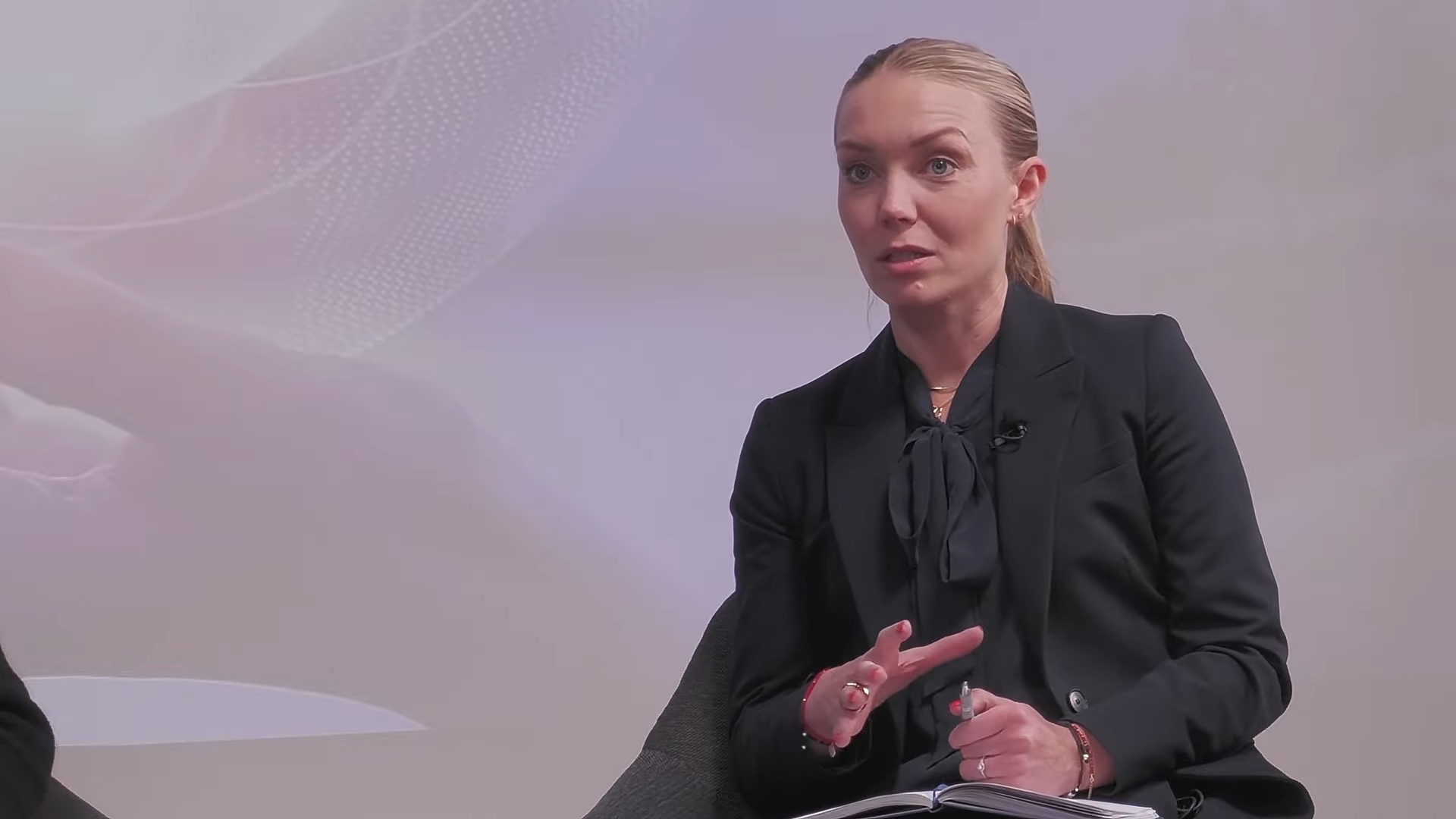
Emilia Vuorela, Head of Marketing and Communications at Pemamek, spoke about sustainable supply chain challenges during the DINO Talkx webinar.
Credit: Dinolift
On the other hand, Pirinen used Dinolift's progress in producing sustainable and low-emission machines to acknowledge the challenges in the wider industry: “The environmentally friendly machines are more expensive, so customers are unwilling to pay. It is changing because they are making the calculations to see the total impact.”
Despite these industry-wide challenges, Ramirent is dedicated to enhancing its circular economy business models, particularly the RamiShare application. Pirinen adds, “This app allows customers to rent machines from users within the same platform, significantly reducing transportation costs. For example, we achieve improved usage rates by enabling multiple contractors to utilise the same DINO, ensuring machines are not idle.”
Kaapola emphasised that Dinolift has offered electric mobile elevating units for almost 50 years: “While we offer diesel motors, choosing the greener option is possible. Our machines are constructed using lightweight and recyclable materials, resulting in a prolonged product lifecycle. You can use our equipment for up to ten years and then opt for refurbishment or recycling.”
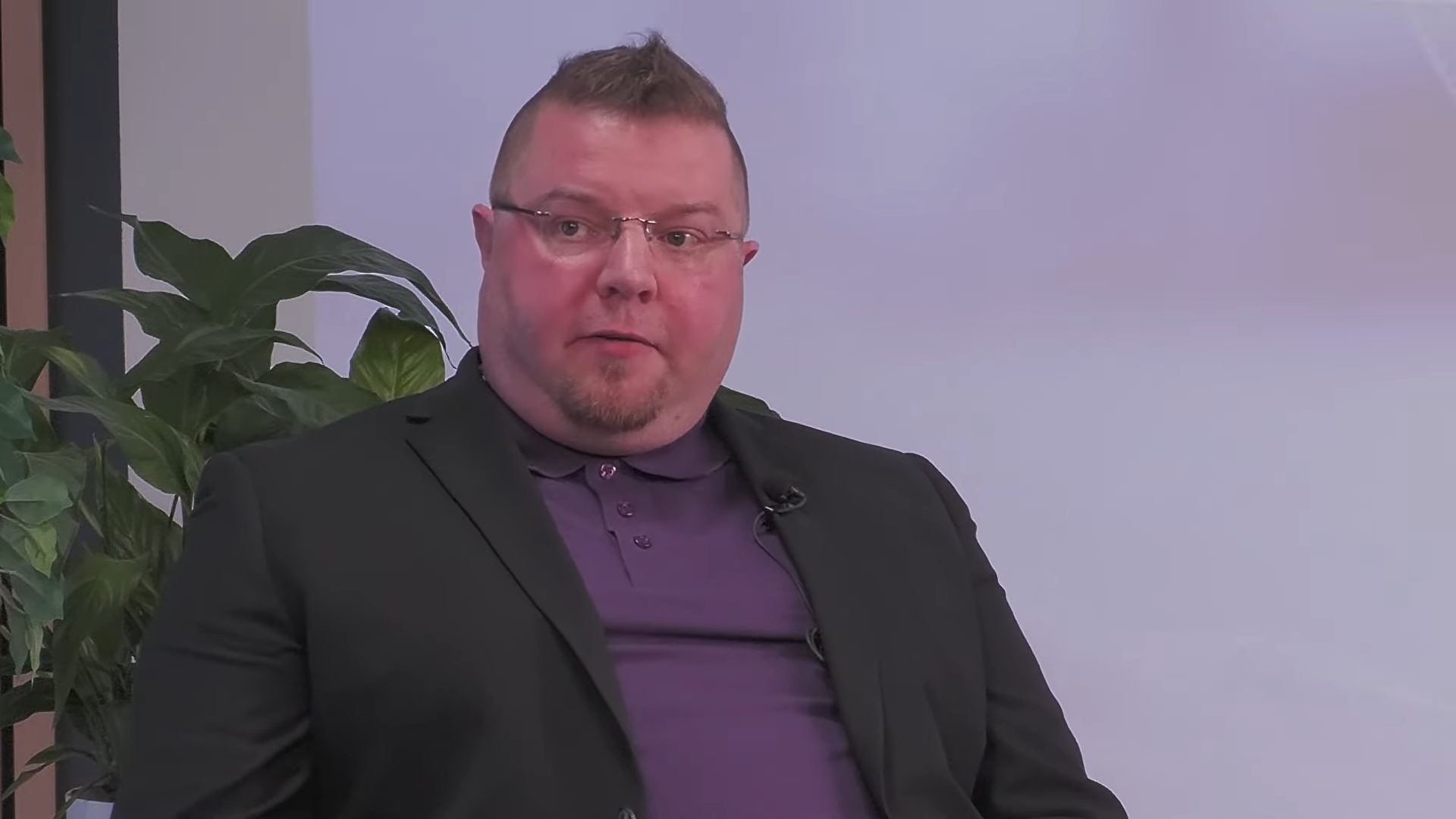
During the DINO Talkx webinar, Ari Kaapola, Supply Chain Manager at Dinolift, highlighted the durability of his company’s equipment.
Credit: Dinolift
Pemamek, in their focus on welding automation for heavy industries, introduced a semi-narrow gap groove technology to reduce energy and consumables consumption in welding, noted Vuorela, thus providing more sustainable solutions to the wind energy sector.
Rantanen ended by emphasising how the digital management of Chemical Safety Data Sheets has improved several areas, including sustainability: “It was on paper in the past, so many documents were outdated as soon as they were published. Once we digitalised this process, it provided quality, up-to-date documentation that can be accessed online or via mobile phone, substantially reducing paper waste.”
Measuring and Adapting to Sustainability
In the subsequent discussion, the assembled experts discussed various methods for measuring the impact of sustainable practices in their businesses, including carbon footprint calculations, project-based emission tracking, ESG performance measurements and resource usage assessments. However, they underlined how companies can adapt, lead and benefit from prioritising sustainability.
Kaapola stressed the importance of prioritising supply chain sustainability and forging partnerships with like-minded suppliers, stating, “It's about setting ambitious goals and embedding sustainability in our corporate culture. While circular economy principles are at a reasonable level, you can always do better. Long-term plans are essential, such as investing in renewable energy.”
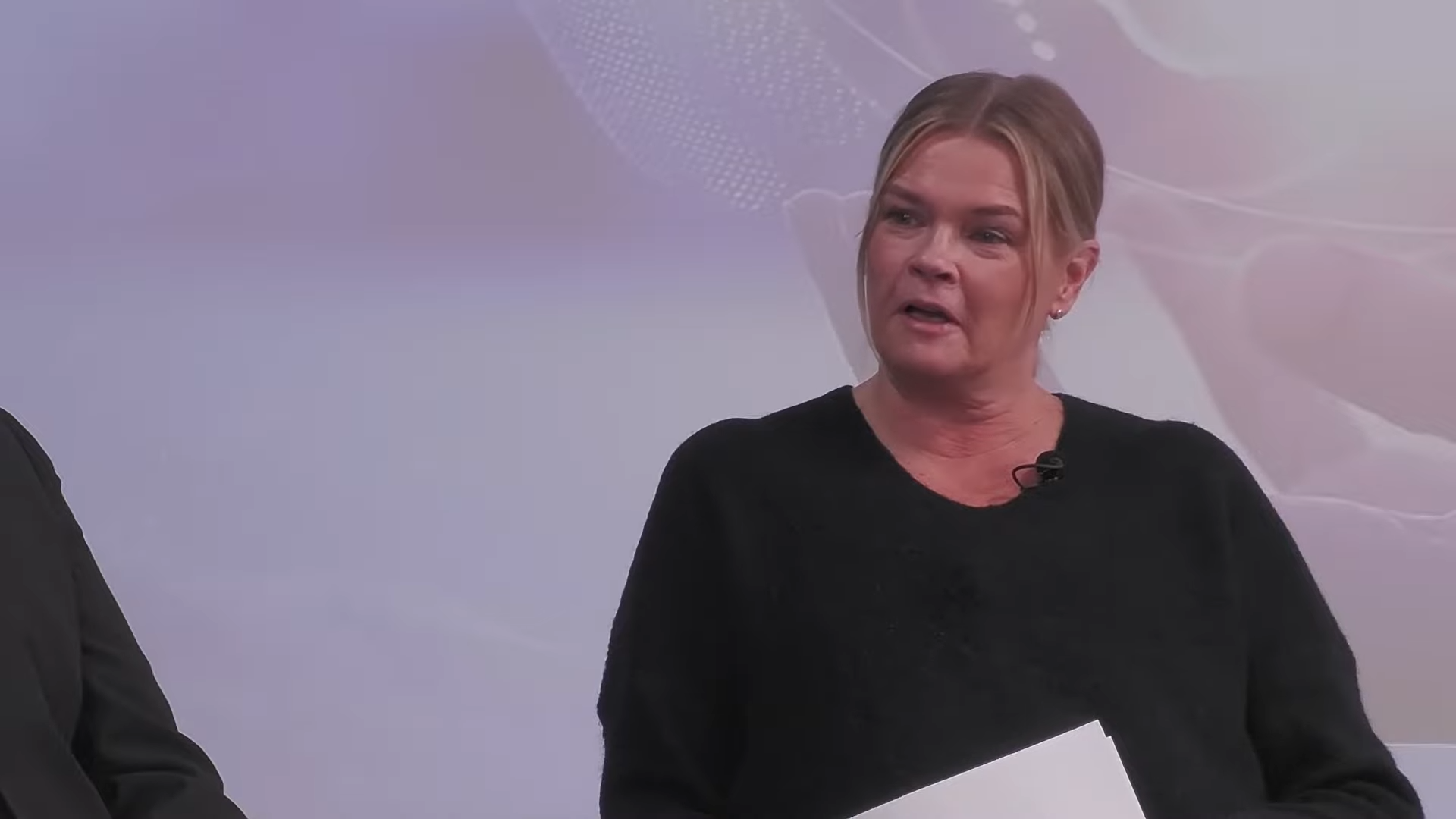
Nina Pirinen, Development Manager at Ramirent Finland Oy, revealed an unusual business mantra during the latest DINO Talkx webinar.
Credit: Dinolift
Echoing the sentiment, Pirinen added that more effort must be taken to adopt circular economy business models and improve the sharing economy: “While it might sound strange, my mantra for Ramirent is to rent less, but at a higher price. We must provide better data and services around these machines to do that. We rent knowledge and information on how to get the job done.”
“When a company gathers data, it brings more transparency to the company,” continued Vuorela. “There is a significant opportunity to develop the processes while acquiring all this data. Ultimately, it benefits the company to become even more efficient or competitive as it learns from its operations.
Building a Foundation for Sustainability
With the EU leading the way, Rantanen sees the legislative impact beyond its borders. “The scope of responsibility is no longer the footprint of the company itself but the supply chain, especially the upstream suppliers. Whether you're a subcontractor in Loimaa, Finland, or Asia, you must have transparency. The CSRD (corporate sustainability reporting directive) will be a reality next year, followed by the due diligence directive, meaning companies must implement methods complying with the Paris Agreement.”
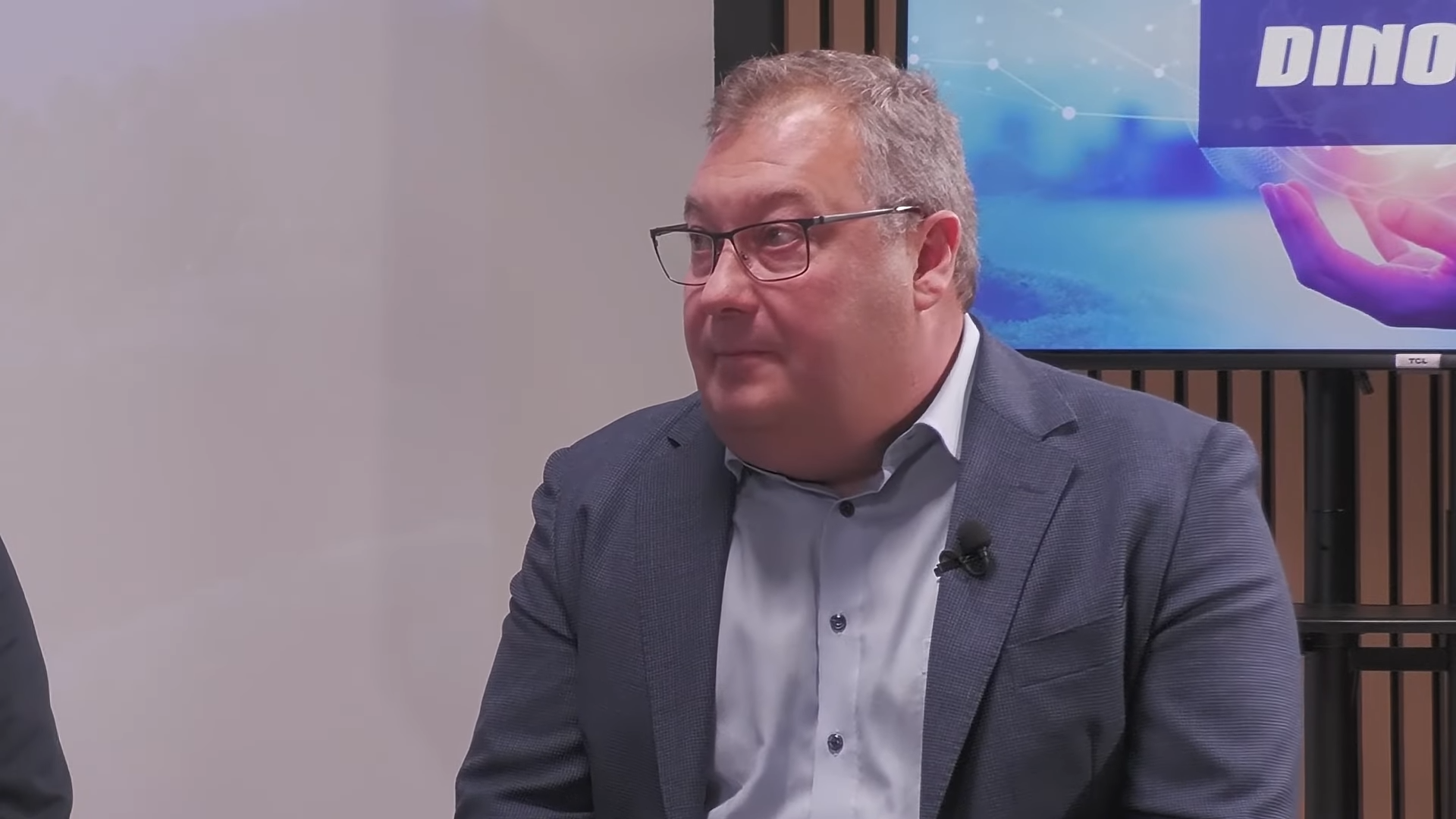
The scope of responsibility is no longer the footprint of the company itself but the supply chain, noted Mika Rantanen, CEO of Würth Oy, during DINO Talkx in October.
Credit: Dinolift
Kaapola sees the tightening of environmental standards, meaning future suppliers must invest in greener production methods, but Pirinen stresses that more prominent companies also have a responsibility to smaller suppliers. “We must not separate ways just because they cannot provide the figures or data. We must help them, share information and work together. Companies will take their ethical responsibilities seriously because that will be the game changer. It is not the price anymore.”
Vuorela believes reporting is not the primary goal, but the entire process, culture and foundation it builds is rewarding. “The report helps you build a strategy, develop focus areas and the company's ambition level. After that, everybody is on the same page, and you must ensure you're going in the same direction. Again, the reporting defines the measurements, the measurement tools and the mechanisms, like ESG.”
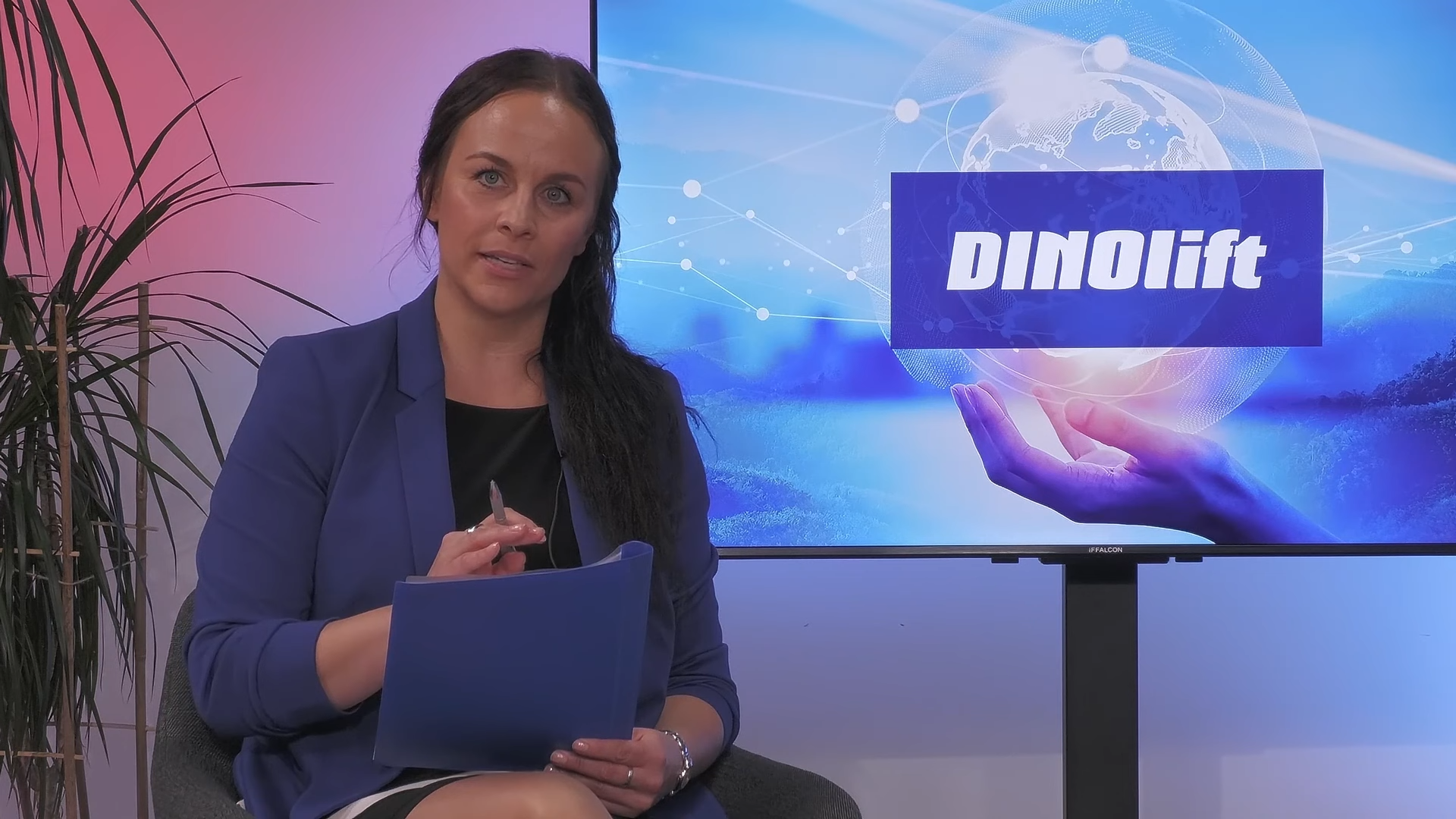
DINO Talkx host Niina Nurmi from Puro Pro brings the webinar to a close.
Credit: Dinolift
For those wondering when the best time to start is, Rantanen states that the moment has passed. Reassuringly, he adds that the second-best time is today. “There is a lot to do. We must be very honest with ourselves that we must sacrifice something; we need to put resources into this. But it will come with effort.”
In conclusion, host Niina Nurmi underscored that it's up to us all to continue seeking new ways, knowledge and opportunities for growth: “Let us work together to create a more sustainable future for ourselves, our companies and future generations.”
Did you miss the DINO Talkx October webinar? Watch the recording in the DINO Hub Archive and catch all the insightful discussions.

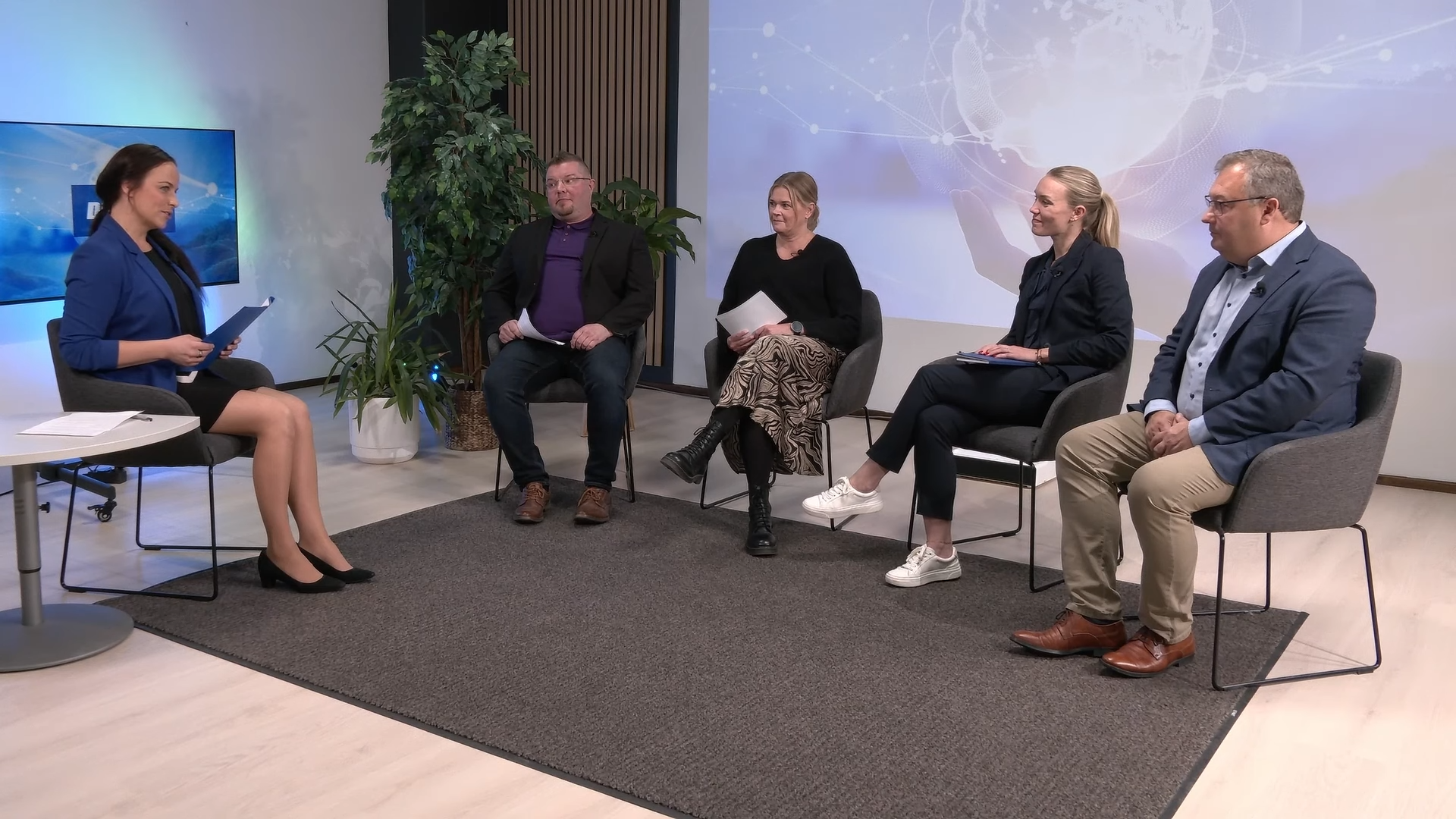

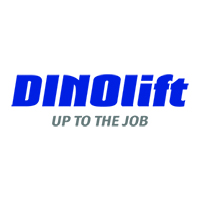
.jpeg?width=363&name=AdobeStock_703827728%20(1).jpeg)

